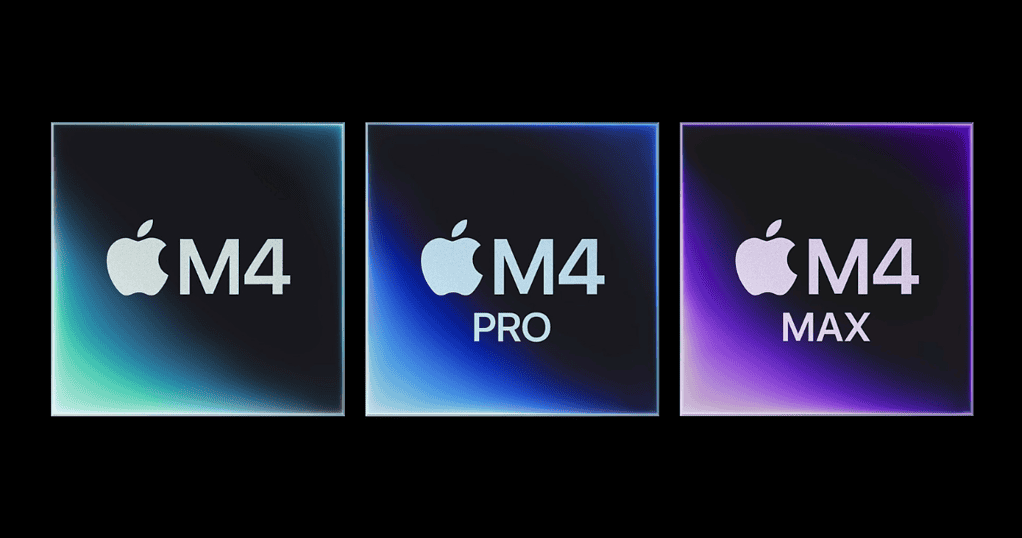Shopping for a new MacBook is always exciting and stressful. Sure, getting a shiny new Apple device is a win, but comparing models, chipsets, and specs can get exhausting fast. And now, with the new MacBook Air sporting both a powerful M4 chip and a lower price tag, you have yet another choice to make. Should you save a few hundred bucks and go with the Air, or is the MacBook Pro still worth the premium?
Some people (aka PC users) might say it’s not that deep—just buy whatever. But when you’re spending anywhere from $1,000 to $3,000, it’s a decision that deserves a second thought. Here’s what you need to know.
How Do the New MacBook Air and MacBook Pro Compare?
The MacBook Air M4 and MacBook Pro (M4, M4 Pro, M4 Max) cater to vastly different users. While both models share Apple’s latest chip architecture, the MacBook Air prioritizes efficiency and affordability, whereas the MacBook Pro leans toward raw performance.
The MacBook Air M4 is Apple’s thinnest and lightest laptop. It features passive cooling (no fan) and a base M4 chip optimized for battery life. You’ll find it best suited for everyday tasks like web browsing, document editing, and light creative work.
Meanwhile, the MacBook Pro lineup, which comes in M4, M4 Pro, and M4 Max, scales up in power. Its target market consists of professionals who juggle various tech-heavy tasks, from 3D video rendering to AI training and development.
Here’s how they stack up:
Performance & Chipset

The MacBook Air ships with only the base M4 chip. Admittedly, it’s a massive improvement over the M3 but lacks the expanded cores of the Pro and Max models. The M4 Pro and M4 Max bring more CPU and GPU cores, higher RAM capacity, and significantly better cooling.
- M4 (MacBook Air & Pro 14”): 10-core CPU, 10-core GPU, great for everyday tasks and some creative workflows.
- M4 Pro (MacBook Pro 14” & 16”): 12-core CPU, 18-core GPU, suited for video editing and coding.
- M4 Max (MacBook Pro 14” & 16”): 14-core CPU, 40-core GPU, overkill for all but the most demanding workloads like AI training and high-resolution video production.
Verdict: The M4 MacBook Air is fine for casual and even light pro use, but if you need sustained high performance, the M4 Pro or M4 Max is worth considering.
Display & Refresh Rate

The MacBook Air keeps its 60Hz Liquid Retina display, while the MacBook Pro features a 120Hz ProMotion mini-LED panel. This makes a huge difference in scrolling, animations, and HDR content playback.
- MacBook Air: 500 nits brightness, supports sRGB and P3 color gamut.
- MacBook Pro: 1,000 nits sustained brightness (1,600 peak for HDR), better contrast, and ProMotion for smoother motion.
Verdict: If display quality and refresh rate matter to you (video editing, HDR content, high refresh gaming), the MacBook Pro wins hands down.
Everyday Use

For most users, the MacBook Air M4 delivers everything you need for browsing, streaming, writing, video calls, and light creative work. It’s fanless, meaning it runs silently while still being powerful enough for photo editing, light video work, and even some coding. The Pro models, on the other hand, are built for more sustained heavy lifting—but that extra power isn’t necessary for casual users.
In my opinion, the MacBook Air is the better choice if your daily workflow mostly revolves around web-based, office tasks, media consumption, or occasional creative work. The Pro models only become necessary when handling demanding professional workloads like 4K video editing, 3D modeling, or AI processing.
Affordability

For students, professionals, and everyday users, the Air’s pricing makes it the most cost-effective choice without sacrificing core performance. The MacBook Pro’s price only makes sense if you truly need the extra power and features.
Starting at $999 for the 13-inch model and $1,299 for the 15-inch, it offers the same base M4 chip found in the entry-level MacBook Pro but at a significantly lower cost. Meanwhile, the MacBook Pro lineup starts at $1,599 for the M4 model, with the M4 Pro and M4 Max configurations climbing well above $2,000.
Should You Get the MacBook Air or MacBook Pro?
Most people would be happy with the MacBook Air M4. It gives you the best balance between performance, battery life, and affordability. However, if your workflow involves sustained heavy tasks, extra displays, or GPU-intensive work, the MacBook Pro M4 Pro and Max are the clear winners.
